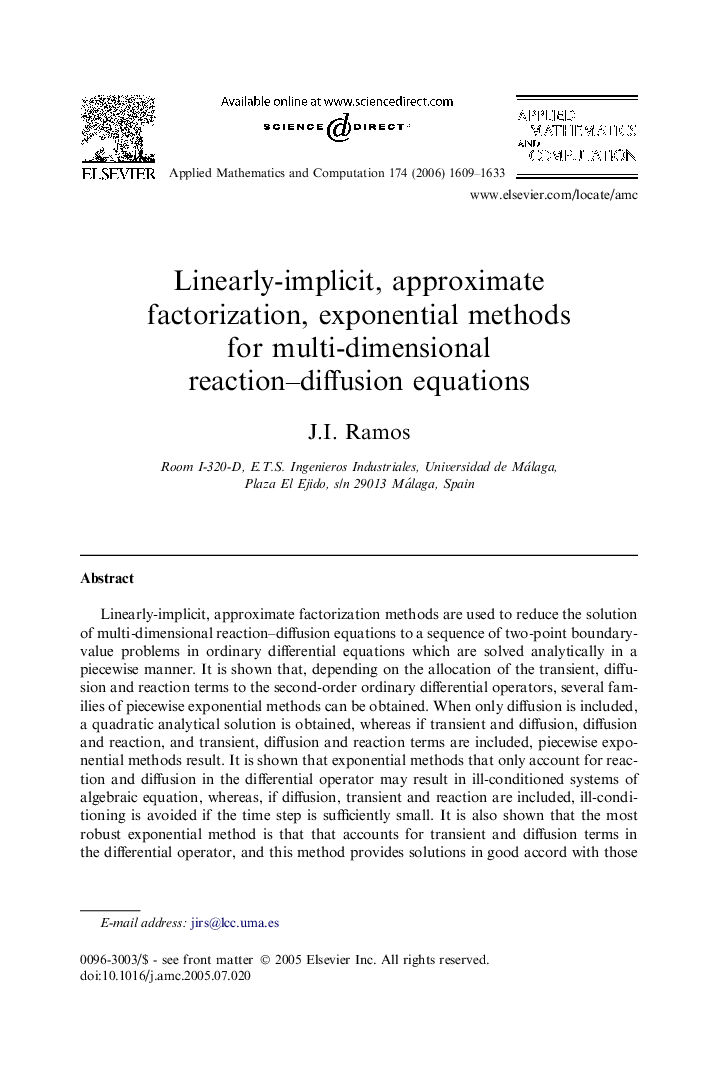| Article ID | Journal | Published Year | Pages | File Type |
|---|---|---|---|---|
| 4637381 | Applied Mathematics and Computation | 2006 | 25 Pages |
Abstract
Linearly-implicit, approximate factorization methods are used to reduce the solution of multi-dimensional reaction-diffusion equations to a sequence of two-point boundary-value problems in ordinary differential equations which are solved analytically in a piecewise manner. It is shown that, depending on the allocation of the transient, diffusion and reaction terms to the second-order ordinary differential operators, several families of piecewise exponential methods can be obtained. When only diffusion is included, a quadratic analytical solution is obtained, whereas if transient and diffusion, diffusion and reaction, and transient, diffusion and reaction terms are included, piecewise exponential methods result. It is shown that exponential methods that only account for reaction and diffusion in the differential operator may result in ill-conditioned systems of algebraic equation, whereas, if diffusion, transient and reaction are included, ill-conditioning is avoided if the time step is sufficiently small. It is also shown that the most robust exponential method is that that accounts for transient and diffusion terms in the differential operator, and this method provides solutions in good accord with those of a linearly-implicit, approximate factorization technique which employs a three-point, second-order accurate discretization of the diffusion terms. It is also shown that a hybrid exponential method that solves the transient, reaction and diffusion terms at odd time levels and the transient and diffusion terms at even time levels also provides very accurate solutions.
Related Topics
Physical Sciences and Engineering
Mathematics
Applied Mathematics
Authors
J.I. Ramos,
